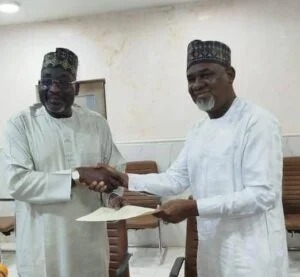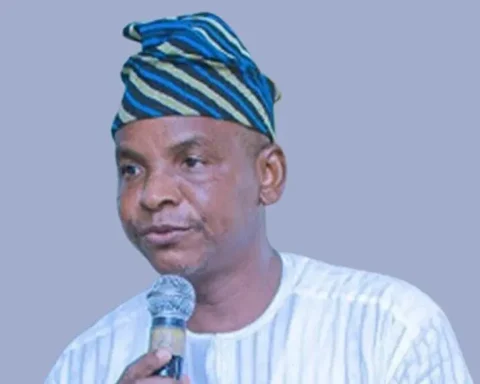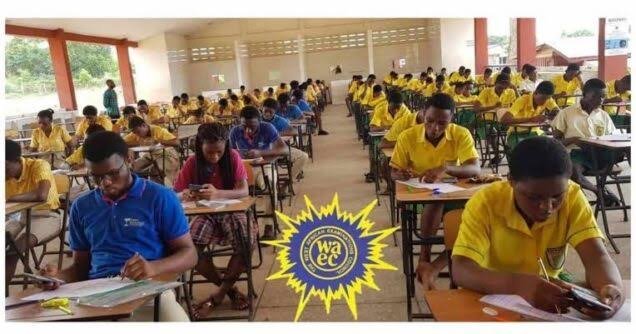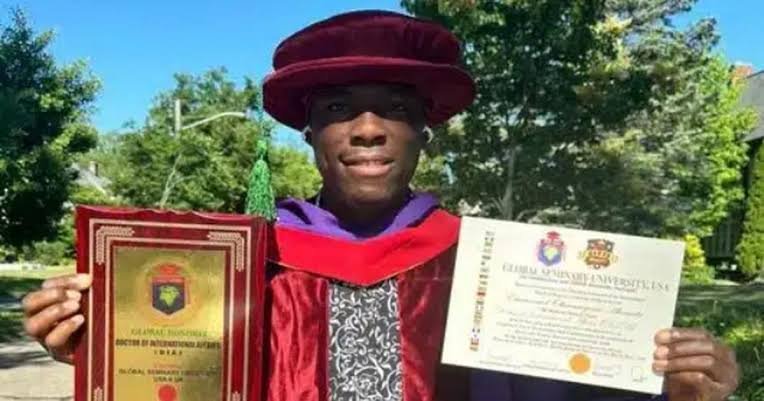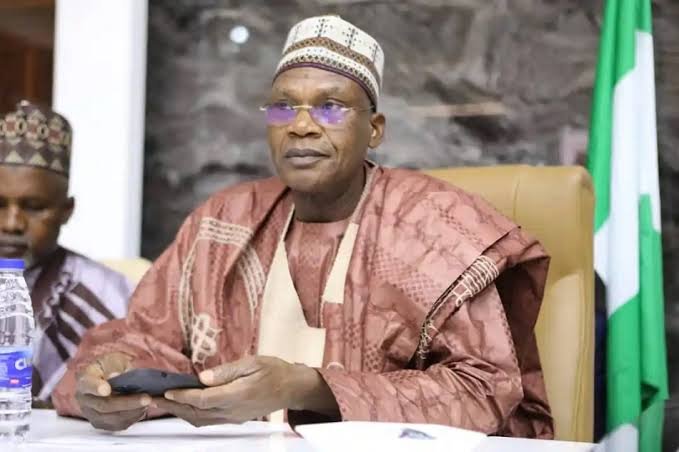Last week on ‘The Bottom Line’, I wrote about the Federal Government’s decision to scrap the 2022 National Language Policy, and the response has overwhelmed me.
At the beginning of this month, the Minister of Education, Tunji Alausa, declared, “Using the mother tongue in Nigeria for the past 15 years has literally destroyed education in certain regions. We have to talk about evidence, not emotions.” Words like these make a nation bleed in tears.
However, I am glad that since the publication of my article, readers, educators, linguists, and other media outlets have engaged with the issue patriotically, showing the deep concern Nigerians have for the future of their languages and the education of their children. Their reactions made me think more about the issue and understand it even better. I said to myself: No, the government must do one thing, the Minister of Education must reverse his words and promote our mother tongue. This is not a cause as the neo-colonialists may have framed it, yet Britain will never tell Nigerians that it is a blessing.
As Chris Agbedo, PhD, rightly puts it: “The new decision assumes that English-only instruction guarantees improved learning outcomes, while the mother-tongue approach has failed.” He went on to add that UNESCO’s landmark 1953 report and follow-up studies show that children learn fastest in a language they already understand, gaining literacy, numeracy, and conceptual skills more effectively. “Locally, the Ife Six-Year Primary Project proved that pupils taught in Yoruba for six years outperformed peers taught entirely in English in every subject, including English itself.”
He also pointed out that globally, scholars like Jim Cummins, Thomas and Collier, Kathleen Heugh, and Tove Skutnabb-Kangas have reinforced the same conclusion: strong mother-tongue instruction lays the foundation for bilingual proficiency, academic success, cultural identity, and human rights. “Even the World Bank’s 2021 study confirms that children who start school in a language they comprehend achieve higher literacy and numeracy outcomes, while also transferring those skills successfully to English.”
He added, and I truly believe that “Taken together, this evidence shows that Nigeria’s reversal does not follow global best practice; it abandons decades of proven research for a politically convenient choice.”
Another reaction by Adeboye Adewoye even thrilled me more. “What has changed in the posture of our former colonisers? Very little. The idea that only English is fit for a nation of at least 200 million Black people, the most populous Black country in the world, remains intact. What is more troubling is that it seems our own Federal Government and Minister of Education have now completely internalised and repeated these colonial myths?”
Until now, I never recalled that it was the British who came up with the national anthem that the current administration asked us to change into, and how we never value our own aspirations. But Adewoye reminded Nigerians of how Professor Babatunde Fafunwa, Minister of Education from 1990 to 1992, strongly championed the introduction of Nigerian languages as the foundation of early childhood education, and how his work, supported by many scholars and educators, was repeatedly undermined by sympathisers of the colonial project who believed that English must remain supreme.
Let us not even talk about identity. Adewoye stressed that “Children learn best when taught in their mother tongue, especially in early childhood. Studies consistently show that native language instruction improves comprehension, cognitive development, communication skills, and long-term academic performance.
When children receive foundational education in a familiar language, they grasp concepts faster and transition more easily to other languages, including English, later in life.”
This statement reminded me of the Igbo proverb: “Amagha Igbo asu oyibo” (one can’t skip Igbo to speak English), showing that even our forebears knew the value of our languages. I know very well that children who speak their mother tongues interpret and understand English better, so I now wonder why the Minister of Education has not noticed this. Adewoye is a biotech executive writing from San Francisco, California, United States.
After reading his article, I asked myself if this insight comes from someone who has studied foreign education systems and resides in the U.S., why would the Minister of Education, knowing the realities of Nigeria’s diverse groups, want to scrap his own languages? I wonder if he wants Nigerians to remain inferior to our colonisers forever. One cannot help but suspect that this announcement may serve personal or political interests rather than the nation’s educational needs.
Now, let’s consider how the minister’s announcement might divide Nigeria even more:
As we battle insecurity and watch the influence of foreign religions continue to divide us, Britain never said anything or even planned to help us. Perhaps, all they are doing, or did, was strip us of the one little thing that remains ours, our language. I cannot help but think that the minister’s announcement will deepen divisions.
Once the federal policy effectively cancels the 2022 National Language Policy, which had aimed to make mother-tongue instruction compulsory across primary education, the recent reactions show that each region will naturally begin to focus on its own language and culture rather than national unity. In time, many citizens may even start to see the government itself as the enemy of their identity.
Kano State recently passed a bill promoting Hausa as the formal language of education, while the South-West pursues programmes to strengthen Yoruba through schools and civic initiatives. In the South-East, communities are translating textbooks into Igbo, ensuring children learn in their first language.
These regional efforts show that citizens and states are not waiting for the Federal Government to act. Nigerians are actively working to preserve their linguistic heritage, proving that mother-tongue education is not just desirable, it is vital. Therefore, the Federal Government’s recent decision risks undermining these efforts, sowing suspicion, and further fragmenting national cohesion.
Why does the policy matter?
I am not here to continue stating all the consequences of scrapping the 2022 National Language Policy; the public has already reminded the government of them. Including but not limited to the fact that, still, mother-tongue instruction directly affects literacy and learning outcomes, giving children a solid foundation for all subjects, including English. It preserves cultural identity, allowing each Nigerian to connect with their history and heritage. And it safeguards minority languages, ensuring that even the smallest communities are not erased from the nation’s linguistic map. Hence, one consequence is that without this policy, we risk undoing decades of progress and leaving our children disconnected from who they are.
It is time for the government to listen. I urge the Minister of Education and policymakers across the nation to reverse this decision. Nigerians are watching, and we expect our leaders to protect our linguistic diversity, not erode it. Mother-tongue instruction is more than an educational strategy; it is a right, a cultural inheritance, and a tool for national development. Supporting our languages is supporting the future of our children and our nation.
Follow us on all social media platforms @dailyquery for news and analyses around the globe.


